#i love when ministers are written as actually three dimensional characters
Text
Harry Potter and the Deathly Hallows, Chapters 1-12
by Dan H
Wednesday, 01 August 2007
Dan reviews the final Harry Potter book chapter by painful chapter.~
I really liked the first three Harry Potter books. They were brilliant, engaging, cleverly written, masterfully paced and - as AS Byatt put it - just scary enough. They were genuinely good children's fiction, of the kind that a grown up wouldn't feel too bad about reading in public.
Then JKR got famous, and her editors stopped doing their job. And she got sucked into a nightmare whirlwind of publicity. And it went downhill from there.
I hate Potter now. Genuinely, vehemently hate it. I hate it precisely because I used to love it, and it angers me no end that the books I enjoyed, about a boy wizard and his boarding-school adventures, have been swallowed by this "phenomenon."
The Harry Potter books aren't "books" any more. They're events. That's why people queue outside a bookshop at midnight to buy a copy, as if somehow starting to read a book an hour later than somebody else makes the reading experience different.
Anyway, to cut a long story short, I have a burning desire to exorcise the spirit of Potter from my soul, and I intend to do it by writing a chapter-by-chapter review of the final instalment. There may be some delays while I fling the book across the room.
So, without further ado...
Chapter One: The Dark Lord Ascending
In which Voldemort borrows Lucius Malfoy's wand.
I should first take a quick moment to say that his book managed to piss me off before chapter one even started by having a quote from Aeschylus at the start. I mean for fuck's sake, what is this, a 1993 Vampire sourcebook?
Anyway, chapter one is called The Dark Lord Ascending although it should more properly be called "The Dark Lord Sitting In A Dining Room And Being A Bit Mean To The Malfoys But Basically Doing Nothing."
Fans of the series will of course be intimately familiar with scenes of Voldemort Doing Nothing. He's been at it for three books now. This chapter is particularly full of fine examples of the Dark Lord's sinister aptitude for inactivity.
The action - or rather inaction - takes place in the pleasingly alliterative grounds of Malfoy Manor. Voldemort and his wacky minions discuss the progress of their sinister plan to take over the Wizarding World. They bicker about when Harry is going to be moved from his present location, and then they do a lot of exposition about how they are going to take over the Ministry of Magic.
This is particularly heavy handed.
"It's a start," said Voldemort. "But Thicknesse is only one man. Scrimgeour must be surrounded by our people before I act. One failed attempt on the Minister's life will set me back a long way."
"Yes, my Lord - that is true - but you know, as the head of the department of magical law enforcement, Thicknesse has regular contact not only with the Minister himself, but also with the heads of all the other Ministry departments. It will, I think, be easy now that we have such a high-ranking official under our control, to subjugate the others, and then we can all work together to bring Scrimgeour down."
Just in case you didn't catch that, they've got control of a man named Thicknesse, got that, Thicknesse, who is head of the department of magical law enforcement, and they are going to use him to get control over all the other ministers, and use that to take down Scrimgeour, and then take control of the ministry of magic.
Remember in the first book, where the Philosopher's Stone was barely seen, seldom discussed, and it wasn't until the very end of the book that you actually found out why Lord Voldemort wanted it so badly? Remember how cool and exciting that was. Damn I miss that.
While the Death Eaters bicker about whether their dastardly plan which they could have enacted at any time over the past three years is actually going to work or not, we are painfully aware that there is a figure, horribly suspended above the table in the centre of the room. Helpless and silent, we are forced to watch the black-hearted villains discuss their tedious-but-horrific plans, while this figure suffers above us.
Imagine, then, how our horror is compounded when we discover that this innocent creature who the Dark Lord torments so casually is none other than ...
... Charity Burbage!
You know. Charity Burbage. She taught Muggle Studies at Hogwarts. Remember Muggle Studies? I think Hermione takes it in her third year. Or something.
So anyway, she dies. And this makes a Meaningful Statement About The Nature Of Death. Students of literary history will of course recall that up until 2000's Goblet of Fire, there had never been a death in any children's book ever written.
The Death Eaters talk some more. They make Nazi salutes (seriously: "in silence, both raised their left arms in a kind of salute") and are racist about Muggles and Mudbloods.
Chapter Two: In Memoriam
In which Harry gets angry at a Daily Prophet article and shouts "Lies!"
For chapter two, we are back following Harry Potter. I confidently predict that we shall never leave his side again.
In chapter two, Harry cuts his finger on the mirror that Sirius gave him. Then he reads two articles about Albus Dumbledore. These give us more information than we could possibly want about the plot-dumping old coot. Tragically, it seems fated to be but the tip of a very large Dumbledore-shaped iceberg.
And these articles are long. Like really, really long. It's basically like JK Rowling took her fifteen-year old notes about the character of Dumbledore, copy-pasted them into the text, and attributed them to a guy with a silly name.
The purpose of this chapter, it seems, is to make us believe that there was more to Dumbledore than we ever expected.
He had thought he knew Dumbledore quite well, but ever since reading this obituary he had been forced to recognise that he had barely known him at all. Never once had he imagined Dumbledore's childhood or youth; it was as though he had sprung into being as Harry had known him, venerable and silver-haired and old.
Now I'm sorry, but that's just cheating.
Dumbledore spends six books being a moderately entertaining but utterly generic White Haired Old Mentor Figure. Harry's belief that Dumbledore had "sprung into being ... venerable and silver-haired and old" is of course literally true. JK Rowling invented him to be a mentor to her protagonist, and at no point does he act like anything else. Dumbledore spends six books as a plot device. Asking us to suddenly see him as a real person is pathetic. She might as well have gone the whole hog and written "Suddenly, Harry realised that JK Rowling was a really brilliant writer, and all her characters were really complex and interesting."
Harry packs his bags, and prepares to leave on his Epic Quest To Defeat Voldemort Using The Spells He Learned In His Second Year Duelling Class.
Chapter Three: The Dursleys Departing
In which the Dursleys Depart, and it's actually quite touching.
This chapter, unlike the previous two chapters, is not a waste of good wood pulp. We see Harry being taken away from the Dursleys for the last time, and the Dursleys themselves being taken into hiding so that Voldemort cannot target them.
This chapter actually contains something approaching a significant event, and even more rarely, some actual semblance of character development on behalf of the otherwise zero-dimensional Dursley family.
"I don't think you're a waste of space."
It's a touch of the old style. The Dursleys remain, to the end, a rather pathetic caricature of a middle class family (and really, is there any easier target in the world than the middle class suburbanite?) but Dudley's admission that he doesn't entirely hate Harry, and that Harry did in fact save his life, carries a genuine emotional weight.
So the Dursleys depart in the company of two utterly forgettable Order of the Phoenix members, and we never hear from them again. From here on in we live forever in the magical world of Hogwarts, where fourteen year olds fight dragons, and Dark Lords are desperate to get teaching gigs.
Chapter Four: The Seven Potters
In which Harry's mail client goes down.
After the Dursleys leave, the Order of the Phoenix show up, and explain that Potter can't escape by magic, because he's still underage, and the "Trace" which detects magic being performed around underage wizards would allow the Ministry to locate him instantly.
So instead they decide to go by broomstick / Thestral / flying motorbike, with six "decoy" Potters, created using Polyjuice potion.
It all goes a bit tits up. They run into a pack of thirty Death Eaters, who start flinging killing curses at them.
Harry responds with the spells he learned in his second year duelling class, and manages to take out about half a dozen of the pursuing Death Eaters with Stupefy and Impedimentia charms, which they are clearly incapable of blocking. Note that since Harry is "still under the Trace," his use of underaged magic should have immediately notified the Ministry to his presence, allowing them to track him trivially. After all, that's why they couldn't just Apparate out of there in the first place. Right?
So Harry and the rest of the Order fight the Death Eaters. During this battle, however, the Order of the Phoenix suffers a Terrible Loss.
"Hedwig - Hedwig -"
But the owl lay motionless and pathetic as a toy on the floor of her cage. He could not take it in, and his terror for the others was paramount.
Leaving aside the fact that I've seen better writing on fanfiction.net (I mean really "He could not take it in and his terror for the others was paramount," what the fuck?), I think it's telling that so far the casualties of this most dark and terrible war are a teacher who we never actually saw in a previous book, and Harry's pet owl. But the whole thing is presented in this massively portentous way that says This Is A Significant Event. I'm sorry, but it's an owl. Not only is it an owl, but it's an owl whose sole function is to deliver Harry's post.
So they fight the Death Eaters, and one of them gets his cowl knocked off to reveal that he is none other than ...
... ready for this? There's a lot of these big revelations coming up...
... he is none other than Stanley Shunpike!
Stanley Shunpike ... the guy off Knight Bus? Yeah, I don't care either.
Harry tries to disarm Stan with his trademark Expelliarmus curse, at which point Stan can identify him immediately. This is apparently significant, although since the Ministry is supposed to be able to tell the moment he performs underage magic of any sort anyway, I'm not sure why he's so shocked.
Some thing go wrong, and Hagrid flying tackles a Death Eater and gets all badly hurt and stuff. The next chapter is called "Fallen Warrior." But don't worry, Hagrid doesn't die. Because people only die if it won't get in the way of the plot. I wish I'd had JK Rowling to explain death to me when I was a child.
Chapter Five: Fallen Warrior
In which JK Rowling talks to us about the nature of death.
Hagrid doesn't die. He and Harry are taken in by Mr and Mrs Tonks, Harry's tooth (which got knocked out in the previous chapter) is regrown by magic.
Harry and Hagrid travel by Portkey to the Burrow. Everybody else shows up one at a time, taking much longer than they needed to.
Lupin gives Harry a stern talking to about not trying to disarm his enemies. You see, the Death Eaters don't understand the idea of disarming your opponent. They're far too evil to consider the advantages of being armed when your opponent isn't. Or something.
"Of course not," said Lupin, "but the Death Eaters - frankly most people! - would have expected you to attack back! Expelliarmus is a useful spell, Harry, but the Death Eaters seem to think it is your signature move, and I urge you not to let it become so!"
Essentially this little speech, like the bit about Dumbledore in chapter two, reads a lot like JK Rowling trying to pretend that her weaknesses as a writer are really deliberate character traits. The fact that Harry always uses Expelliarmus in a fight is a limitation of miss Rowling's imagination, her idea of non-evil things to do in a fight is strictly limited. Trying to claim that this is somehow saying something profound about Harry's naivete or his merciful nature is hogwash.
Most everybody makes it back in one piece. George (of Fred and George) loses an ear, which apparently can't be cured because it's "Dark Magic". And Mad-Eye-Moody dies. Now, I kinda liked Mad-Eye, but the character I actually liked was Mad-Eye as played by Barty Crouch under the influence of Polyjuice potion. Now admittedly, that character is pretty much identical to the "real" Mad-Eye, but that's rather strong testimony to how poorly developed he actually was.
This would all be fair enough, but JK then insists on making it very clear to us that there is Death happening and that Death is a very important part of the book, because it's important that children be told about Death.
So we get glorious lines like:
Harry could not quite believe it. Mad-Eye dead; it could not be ... Mad-Eye, so tough, so brave, the consummate survivor ...
And...
Nobody seemed to know what to do. Tonks was crying silently into a hand-kerchief: she had been close to Mad-Eye, Harry knew, his favourite and his protegee at the Ministry of Magic.
And of course the execrable:
The suddenness and completeness of death was with them like a presence.
The first two are just the old show-don't tell problem, which JK never really got over. She's never really worked out how to convey something to her audience without just telling it to them directly. The last line, though, is just completely fucking amateurish. It's up there with "From my point of view, the Jedi are evil."
Leaving aside the fact that, yet again, she's attempting to convey the information that the people in the room have been struck by the suddenness and completeness of death by saying "the suddenness and completeness of death was with them" she also seems to think that "was with them like a presence" is anything other than nonsense. I mean, how can something be with you without being like a presence? It's a completely empty simile. It's functionally equivalent to saying "the suddenness and completeness of death was with them like a thing" or "the suddenness and completeness of death was with them like a thing that was with them."
I really hate this book.
Chapter Six: The Ghoul In Pyjamas
In which we get a plot dump about Horcruxes.
In chapter six we have a refreshing change of pace. And by "refreshing" I mean "frustrating" and by "change of pace" I mean "slow to a painful crawl as we watch Harry and co sit around doing nothing for several days."
So Bill and Fleur are getting married. We spend an inordinate amount of time talking about this. Mrs Weasley is entirely preoccupied with it. Presumably because she's a woman and therefore doesn't understand important things like war, death, and her son losing an ear.
In chapter six, Harry Ron and Hermione explain to each other in great detail the plans they have made for their upcoming battle against Voldemort. So we learn how Hermione mind-raped her parents in order to keep them safe (she cries about this for four seconds, Harry and Ron do not comment). We learn how Ron has dressed up the Weasleys' pet Ghoul in an unconvincing red wig, so that nobody will suspect that he's really out to kill Voldemort.
The thing that bugs me about this chapter is that it tries to provide answers to questions which I wouldn't have thought were important until JK drew attention to them. If the book had just been about Messers Potter, Weasley and Granger hunting some Dark Lord ass, I'd be totally onside. Putting this chapter in to "explain" why Voldemort doesn't just capture the Weasleys and torture the hell out of them just highlights how ludicrous it is that he doesn't. Hell, once he's taken over the Ministry of Magic, he could very easily haul in everybody Potter has ever cared about, and start hacking bits off of them until Harry gives himself up.
But he doesn't. Because Ron has cunningly disguised a Ghoul as "Ron With a horrible disease and a completely different face". So they'll leave the Weasleys alone. They're considerate, those Death Eaters.
The other thing we find out is that Hermione has a copy of Secrets of the Darkest Art, otherwise known as the Big Book of Horcruxes. She proceeds to explain in excruciating detail exactly how Horcruxes work. Because lord knows we wouldn't want anybody reading the book to draw their own conclusions about that sort of thing. That would imply that reading a work of fiction was something other than the process of learning facts about the author's world. We can't have that now can we.
Similarly, we get things like:
"I wonder when Dumbledore removed it from the library ... if he didn't do it until he was headmaster, I bet Voldemort got all the instruction he needed from here."
"Why did he have to ask Slughorn how to make a Horcrux then, if he'd already read that?" asked Ron.
"He only approached Slughorn to find out what would happen if you split your soul into seven," said Harry.
Which, let's face it, reads like the Q&A section from JKR's official website. This isn't Harry talking to Ron, this is Rowling talking to her readers. At least, to the sorts of readers who ask that sort of question.
The chapter ends with no progress having been made towards finding any of the Horcruxes.
Chapter Seven: The Will of Albus Dumbledore
In which Ginny kisses Harry Like She Has Never Kissed Him Before
Chapter seven is a mystery dump. Harry wakes up shouting "Grigorovitch!" and we are left to wonder what this mysterious name means.
It's Harry's birthday. Ron gets him a book about pulling chicks. Ginny kisses him as she has never kissed him before. The Minister for Magic shows up and tells Harry, Ron and Hermione that they have all been left stuff in Dumbledore's will. Then he makes an inept attempt to grill them for information.
In Dumbledore's Will, Ron is left the Deluminator (the thing Dumbledore uses at the start of the first book to put out the lights in Privet Drive), Hermione is left a book of fairy tales, and Harry is left the Snitch from his first ever game of Quidditch. And the Sword of Godric Gryffindor, but he's not given that. We are then told that all of these gifts are Very Very Mysterious but that Dumbledore Must Have Had A Plan and therefore it is Important To Work Out What Each Of The Gifts Means.
Once again, nothing happens. Ron tells Harry to keep his filthy vacillating hands out of his sister's long, sweet-smelling hair. Team Potter wonders why Dumbledore left them the bunch of crap he left them. And of course they wonder why the irritating old coot didn't tell them what was going on while he was still alive, or give Harry the Sword of Godric Gryffindor when he still had the chance.
"And why couldn't he have just told me?" Harry said quietly. "It was there, it was right there on the wall of his office during all our talks last year! If he wanted me to have it, why didn't he give it to me then?"
Going by previous form, the answer to this all important question about Dumbledore's already spurious motivation probably has something to do with love.
Everybody gets ready for the wedding. Because a wedding is exactly what you should be thinking about when a Nazi wizard with no nose is taking over the world.
Chapter Eight: The Wedding
In which Voldemort takes over the world while Harry is at a wedding.
One of the Weasleys marries one of the characters with a stupid accent. Harry is Polyjuiced into a red-headed stepchild so that he can hide amongst the guests. Harry then has to babysit an offensive aunt of the Weasley clan, who says horrible things about everybody.
Harry, being a man who has his priorities sorted out, decides that the best use of his time, seeing as how he's destined to destroy the Dark Lord and everything, is to get really obsessive about Dumbledore's family history. To be fair to the kid, it's not like he was going to be able to get anything done at the wedding anyway.
So we learn more tedious crap about how Dumbledore's mother was like evil or something, and he had a sister who was a squib. We also learn ...
... get ready for another big revelation ...
... this one's really big ...
... no seriously ...
we also learn that the Dumbledores used to live in Godric's Hollow! Doesn't that shed a whole new light on the other books? Can't you just see it all now, how Dumbledore's every glance, every gesture was just screaming "Harry! My family once lived in the same general location as your family!" Truly, we are in the presence of a master storyteller.
We also find out that Grigorovitch was a wandmaker, that Voldemort is still evil, and that Voldemort has killed the Minister of Magic and taken control of the Wizarding government.
The Ministry has fallen. Scrimgeour is dead. They are coming.
Okay, I get it. It's punchy. But for the love of all that is holy, we're a hundred and thirty-three pages in, the Death Eaters have finally done something interesting, and we miss it because we're stuck following Harry, who is stuck at a wedding and angsting about his old headmaster.
Chapter Nine: A Place To Hide
In which Team Potter sits around doing nothing.
Potter and his pals flee the wedding and hide out in a greasy spoon cafe, where they are set upon by Dolohov and Thorfin Rowle. Presumably these names mean something to somebody - perhaps to people who have religiously followed JK Rowling's "Wizard of the Month" updates on her website. These two Death Eaters fail to capture the Potterites, which should come as no surprise to anybody.
They decide to modify the memories of these two men, in order to cover their escape. Because lord knows a couple of mindless zombies won't attract attention.
"But I've never done a memory charm."
"Nor have I," said Hermione, "but I know the theory."
By "but I know the theory" she of course means "I mind-raped my parents into thinking they were completely different people who wanted to move to Australia, and by the way I told you fuckers that - like - two chapters ago and you didn't offer me any support or sympathy."
They decide they need somewhere safe, and they decide to go to Grimmauld Place, which is apparently safe because the late, lamented Mad-Eye had set up "protections" there, so that Snape couldn't get in and kill them all (remember that, although JK Rowling told us categorically that Snape was a good guy, we're supposed to ignore this information and keep acting like we think he's a villain). These "protections" turn out to be a tongue-tying curse that lasts for eight seconds (and can't Snape cast spells silently anyway?) and a Spooky Dumbledore Ghost, which goes away once you tell it you aren't Snape.
This chapter is mercifully short.
Chapter Ten: Kreacher's Tale
In which we are told firmly that Sirius black was NOT GAY.
Harry pokes around Grimmauld place, finding Sirius' old collection of bikini model posters, photograph of himself at the age of one, and a letter from Lily Potter which basically reads:
"Dear Sirius, I'm really glad we aren't going get horribly killed in the next six months. Baby Harry is wonderful and I love him very much. So much that I'll make him immune to dark magic by the sheer loving power of my loving loving love. Love Lily."
And of course, the letter ends on this note:
Bathilda drops in most days, she's a fascinating old thing with the most amazing stories about Dumbledore, I'm not sure he'd be pleased if he knew! I don't know how much to believe, actually, because it seems incredible that Dumbledore...
The rest of the letter is missing.
You fucking hack, JK Rowling. Look, I get it. You've got a bunch of Dumbledore backplot you want to give us. You've told us that. Just give us the plot dump, or don't give us the plot dump. I don't care at this stage. Nothing's going to be as cool as "he was Ron from the future" anyway.
Next to Sirius' room is the bedroom of ...
... wait for it ...
... Sirius's brother: Regulus Arcturus Black.
It's a good thing that he put his middle name on his door really. And a good thing that no two people in the entire Wizarding world have the same initials.
So they've found RAB, but no magic locket of Horcruxness. They ransack the house, then realise that Mundungus probably nicked off with it. Bastard.
So they go to Kreacher, and he gives them a bit of backstory which, unusually is genuinely touching. It turns out that crotchety old Kreacher was given to Lord Voldemort by Regulus, and Voldemort used him to "test" the defences around his locket Horcrux, making Kreacher drink the poison so that he could hide the artefact underneath it. Curiously, this led the Dark Lord to believe that his defences were completely secure, instead of the more sensible opinion that his defences could be breached by anybody with access to a tractable house-elf.
Anyway, Kreacher was all wrecked by this, and when Regulus found out he turned against Voldemort (possibly the genocide was giving him the willies as well). He got Kreacher to take him back to the cave, drank the poison himself, and gave Kreacher the Horcrux with instructions that he should destroy it.
Which is actually kind of sweet, and I'm damned certain Harry and co would never dream of sacrificing themselves for a house-elf.
So they decide to be nice to Kreacher, and this gets him onside. They then send Kreacher looking for Mundugus, so they can get the Horcrux back off him.
Chapter Eleven: The Bribe
In which Harry Potter bravely lets a house-elf do his job for him.
Harry Potter, realising that in order to defeat Voldemort he must use the Dark Lord's own methods, however despicable they might be, spends this chapter sitting on his arse doing nothing. Not that Voldemort has anything to fear: he's had decades to practice his sitting-on-his-arse-doing-nothing, and Harry's arse-sitting seems amateurish by comparison.
So anyway. Harry sends Kreacher to get Mundungus back, so he can ask for the Horcrux. While he is sitting around waiting, Remus Lupin shows up and acts like an asshole. He informs Harry that Tonks is now pregnant, and therefore he has decided to join Harry on his quest, because werewolves shouldn't be allowed near small children or something.
We also find out that Voldemort and his minions have continued their cunning plan to imitate the Nazis and have started making Muggle-Borns "register", and presumably wear little yellow stars as well, because in case you hadn't noticed the Death Eaters are a little bit like the Nazis and Voldemort's desire to wipe out the Muggle-Borns is a little bit like the Holocaust. Clever that, isn't it. Kudos to you JK Rowling. It's about time somebody took a stand against genocide.
Anyway, I digress. Remus shows up and acts like an asshole. Harry acts like an asshole back, and they get into this huge "who can be the biggest asshole" competition. This shows us that Harry has "grown up" over the course of the books. We know this because he is now acting like a forty year old novelist thinks a teenager would act, rather than actually displaying any form of personality or motivation.
Remus leaves to go back to his "wife and child", but not before giving us another one of the by now familiar "this is why this book totally makes sense and doesn't suck" speeches. When asked (very sensibly) why Voldemort doesn't just come into the open now that he's - y'know - taken over the goddamned world already, Lupin insists that:
"Voldemort is playing a very clever game. Declaring himself might have provoked open rebellion: remaining masked has crafted confusion, uncertainty and fear."
Once again, JK drops the "show, don't tell" ball, by having somebody inform us that Voldemort is being clever, when in fact all he's doing is letting Harry slip through his fingers by pulling his punches when he should be rounding people up by the truckload. I mean what, precisely, does Voldemort have to fear from open rebellion? And if he wants to create confusion uncertainty and fear, then I'm sure a couple of senseless massacres could do the same job with fewer administrative overheads.
Eventually Kreacher, who is the only person around here still doing his job right, brings Mundungus back, and he reveals that he gave the amulet to Dolores "Wasn't I Killed by Centaurs Already?" Umbridge as a bribe.
So Harry is off to the Ministry of magic.
Chapter Twelve: Magic is Might
In which we get yet another Polyjuice sequence.
One thing I'll say for JK Rowling: you've got to respect her plot devices. While nothing will ever top the Room of Requirement for sheer brass-bollocked "yeah, this thing does whatever the hell I need it to" style, Polyjuice potion pulls its weight and then some.
So Harry, Ron and Hermione polyjuice themselves into Ministry employees and walk right in through the front door. This reminds us, as if we didn't know already, that the Ministry is run by morons who, despite Polyjuice potion being common enough that an above-average twelve year old can whip up a batch, haven't thought to take any precautions against their members being waylaid and replaced by rebellious seventeen year olds. Perhaps Voldemort couldn't increase security too much on account of his not wanting to "provoke open rebellion." He's just too damned clever for his own good, that Lord Voldemort.
This chapter is almost Tolkeinesque in its irrelevance. It essentially chronicles, in painstaking detail, the way in which Team Potter knock out some Ministry officials, polyjuice into them, and walk into the ministry. On their way in they hear terrible things about Mudbloods and Blood-Traitors being put on trial. For a Dark Lord, Voldemort is clearly very concerned about due process.
The chapter takes its name from an irrelevant but kinda cool piece of window-dressing. The phrase "Magic is Might" is engraved onto the base of the new (black) statue which has replaced the old frolicking magical creatures motif.
Harry looked more closely and realised that what he had thought were decoratively carved thrones were actually mounds of carved humans: hundreds and hundreds of naked bodies, men, women and children, all with rather stupid, ugly faces, twisted and pressed together to support the weight of the handsomely robed wizards.
Now that's some serious Dark Lord style. But you'd think with his overall agenda of world conquest and crushing the Muggles and the Muggle-born beneath his pallid iron-shod heel, he'd be less concerned about hiding in the shadows.
Oh, also in this chapter we find out some more shit about Dumbledore or something. And Snape has been made headmaster of Hogwarts. And Voldemort is still looking for this wand-maker guy.
Next: The return of Dolores Umbridge, and more pointless backplot.
Themes: J.K. Rowling, Books, Young Adult / Children
~
bookmark this with - facebook - delicious - digg - stumbleupon - reddit
~
Comments (go to latest)
http://pozorvlak.livejournal.com/ at 20:39 on 2009-02-08
That, my friend, was awesome. You had at least twice as many quotable lines in that piece as JKR managed throughout the entire book.
permalink - go to top
Rami at 06:53 on 2009-02-09
Welcome to Dan's Fans -- meetings are every Saturday at 11... ;-)
permalink - go to top
Arthur B at 09:16 on 2009-02-09
You realise, of course, that there's only one way this can end: sooner or later someone, somewhere, is going to write Harry Potter fanfic where Dan is a character. (He could teach all the kids physics and he could be in a big snark feud with Snape and Snape will challenge him to a duel and Harry will be all GO DAN SHOW THAT MEANY WHO'S BOSS and Hermione will be all OH WOW PHYSICS IS SO MUCH BETTER THAN MAGIC I AM TOTALLY A SCIENCE NERD NOW and Ron is all MAN IF I WERE GROWN UP I WOULD TOTALLY SMOOCH DAN RIGHT NOW and Dumbledore is all MAN IF EVERYONE I KISSED DIDN'T TURN INTO HITLER I WOULD TOTALLY SMOOCH DAN RIGHT NOW and Dan beats Snape in duel with science and Snape is all I WAS WRONG TO SAY SCIENCE IS LAME YOU SHOULD STAY HERE AT HOGWARTS AND TEACH US ALL THE WAY OF THE MUGGLES and Dan is all like NO WAY THE KIDS OF ALL NATIONS NEED ME and he turns around and punches Voldemort in the jaw so hard his head comes off and then he takes off and flies away to the Moooooooooooooon....)
permalink - go to top
Wardog at 10:54 on 2009-02-09
But Dan doesn't have long dark hair, skin like freshly poured cream and violet eyes....
permalink - go to top
Arthur B at 11:03 on 2009-02-09
Aaaand there's my cue to post a link to the Sparklypoo comic.
permalink - go to top
https://me.yahoo.com/a/tjLTVHEducFb4rKDHU5DukBHtQcCbTVMEEq55v0CxV4-#5e156 at 19:43 on 2009-07-29
Brilliant, absolutely hilarious, I want to show the rest of the Harry Potter fanbase your review. I wonder if my inertia could ever be on a par with Voldemort's. "My inertia is with me like something that is with me."
permalink - go to top
http://lunabell14.myopenid.com/ at 22:50 on 2010-07-27
I wonder if cutting out all of that unnecessary Dumbledore backstory would've helped the pacing, or at least cut down some of the reading. Seriously, even when it was first introduced, I couldn't help but think "Why are you telling us about this? How will this help with Harry's quest, at all?" And every time it was brought up, it just continued to irritate me. I honestly don't understand why her editors didn't insist she cut it out.
6 notes
·
View notes
Text
A Walk to Remember Chapter 1 Snark
If you enjoy the content you are reading, please like and follow the Center of Stupidity blog.
Interested in reading the previous A Walk to Remember chapter snarks? They can be found here.
Next Nicholas Sparks Book Snark: The Rescue
Chapter summary: We meet a Bible-thumping minister and Landon is a terrible person. Also, the designated love interest is an Angel of the House: innocent, perfect, and pure.
The story is set in Beaufort, North Carolina in 1958.
Landon says that the humidity is so hot in the summer that “walking out to get the mail made a person feel as if he needed a shower.”
People waved from their cars whenever they saw someone on the street whether they knew him or not,
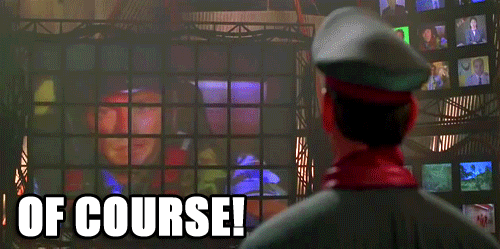
In a Nicholas Sparks, everyone is friendly, good, and God-fearing Christians. (The villain is always one-dimensional.)
They know each other’s business and have lived in town for their entire lives. And news always travels fast in the small town.
Landon says for many people fishing and crabbing is a way of life.
Only three channels came in on the television, though television was never important to those of us who grew up there. Instead our lives were centered around the churches, of which there were eighteen within the town limits alone.
1. Yes, I know that Americans were more religious in the 1950’s.
2. But they still had a life outside of a church and weren’t thinking about Jesus 24/7.
3. People went camping and fishing. They also went to bowling alleys, sock hops, and drive-in movie theaters.
4. For most of the story, Landon isn’t very religious. He goes to church but that’s it. And Landon regards a girl who reads the Bible every day as a weirdo.
5. The only time Landon became religious is when he supposedly fell in love with Jamie.
6. It is important to remember that Nicholas Sparks has writing rules that he won’t break like all of his characters must go to church.
7. And he has said that people without faith are alone, thinking they are the center of the universe.
Landon rattles off the names and types of Baptist churches in the area.
The big event of the year is a Christmas play sponsored by the Baptist church downtown and the local high school.
The play is written by Hegbert Sullivan, “a minister who’d been with the church since Moses parted the Red Sea."
Okay, maybe he wasn’t that old, but he was old enough that you could almost see through the guy’s skin. It was sort of clammy all the time, and translucent—kids would swear they actually saw the blood flowing through his veins—
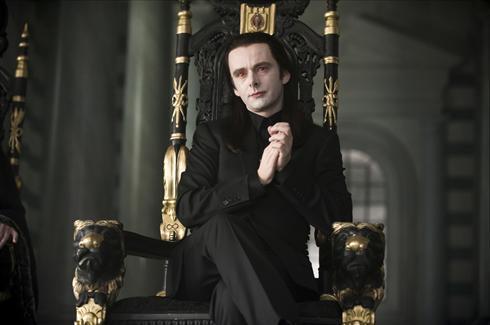
Translucent skin… Translu…
“His skin was translucently white, like onionskin, and it looked just as delicate—” New Moon by Stephenie Meyer
So Hegbert is a sparklepire? Good to know.
and his hair was as white as those bunnies you see in pet stores around Easter.
Wow. Just wow. The prose is so boring and bland.
And Nicholas Sparks thinks he writes like Ernest Hemingway…
Also, what seventeen-year-old boy would say “bunnies”?
Hebert wrote the play The Christmas Angel because he hates A Christmas Carol.
In his mind, Scrooge was a heathen, who came to his redemption only because he saw ghosts, not angels—and who was to say whether they’d been sent by God, anyway?
I hate to break it to ya but both ghosts and angels are spirits.
The only difference is that a ghost is a human spirit that has not properly passed over to the other side and they remain on earth while angels are spiritual beings of light.
And who was to say he wouldn’t revert to his sinful ways if they hadn’t been sent directly from heaven?
Um… If the ghosts weren’t sent from Heaven, then where did they come from?
Baptists don’t believe in purgatory. After death, they believe that there are only two places where people can go: Heaven or Hell.
Unless the minister thinks the ghosts are demons in disguise.
It won’t make any sense because the three spirits are trying to get Scrooge to repent and be a better person.
The play didn’t exactly tell you in the end—it sort of plays into faith and all—
Maybe Charles Dickens didn’t think he had to spell it out in 72 pt Times New Roman font.
but Hegbert didn’t trust ghosts if they weren’t actually sent by God, which wasn’t explained in plain language, and this was his big problem with it.
1. And where is the proof that they are not sent by God?
2. Faith is about believing without seeing and not demanding proof.
3. And Christians who deepen their faith learn how to discern between the voice of God, the voice of Satan, and one’s ego.
4. Is Hegbert pissed off at Charles Dickens because the ghosts didn’t say ”I am the ghost of Christmas (past/present/future) and I was sent by God the Father Almighty, Maker of Heaven and Earth"?
5. Because following that logic, the Archangel Raphael was not sent by God.
6. In The Book of Tobit, the Archangel Raphael didn’t reveal his identity until Tobit cures his father’s blindness. For most of the story, Tobit knew the Archangel Raphael as Azariah the son of Hananiah the great.
A few years back he’d changed the end of the play—sort of followed it up with his own version, complete with old man Scrooge becoming a preacher and all, heading off to Jerusalem to find the place where Jesus once taught the scribes.
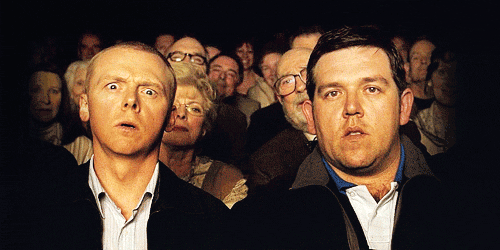
Unsurprisingly, nobody liked the play so Hegbert decided to write his own play.
He’d written his own sermons his whole life, and some of them, we had to admit, were actually interesting, especially when he talked about the “wrath of God coming down on the fornicators” and all that good stuff.
A fire and brimstone minister.
N. Sparks will claim later on that he has a great sense of humor and we are supposed to see him as a great guy.
Because we all know fire and brimstone ministers are not anti-semitic, homophobic, islamophobic, misogynistic, racist, sexist and xenophobic pieces of shit.
That really got his blood boiling, I’ll tell you, when he talked about the fornicators. That was his real hot spot.
“And don’t get him started on those Commies and sodomites."
So Landon and his friends hid behind trees and shouting that Hegbert is a fornicator before walking down the street.
We’d giggle like idiots, like we were the wittiest creatures ever to inhabit the planet.

Landon is following Anita Blake's logic: If you do something wrong, just say you feel bad about it, and continue being a terrible person. And nobody will dare tell you to STOP being an asshole.
Old Hegbert, he’d stop dead in his tracks and his ears would perk up—I swear to God, they actually moved—and he’d turn this bright shade of red, like he’d just drunk gasoline, and the big green veins in his neck would start sticking out all over, like those maps of the Amazon River that you see in National Geographic.
1. So Hegbert is a mog too? (Virtual cupcake to anyone who gets that reference.)
2. I know that some people can wiggle their ears. Because humans can't perk their ears up like a dog.
Hegbert is pissed off and he is looking for them.
Boy, it was something to watch, that’s for sure.
"Being an asshole is a lot of fun!"
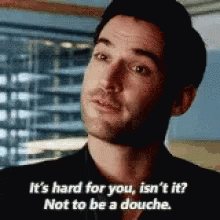
So the assholes are hiding behind a tree. Landon sneers "what kind of parents name their kid Hegbert, anyway?" and Hegbert is standing there, waiting for them to "to give ourselves up, as if he thought we’d be that stupid."
They cover their mouths with their hands and Hegbert always knows where to find them.
Hegbert tells them that he along with the Lord knows "who you are". And a minute later, Hegbert walks away.
During the sermon that weekend he’d stare right at us and say something like “God is merciful to children, but the children must be worthy as well.”
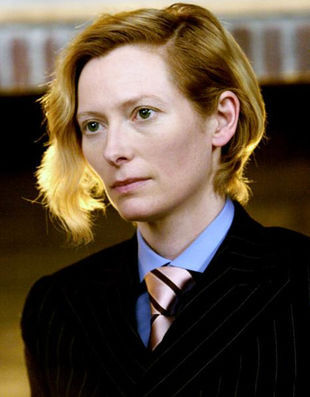
"But subject you to pain, unpleasantness -- suffering -- and you will take notice, you will fight to overcome, to earn your redemption. That is when you're at your best." Gabriel from Constantine 2005.
I think Gabriel and Hegbert should go bowling.
The assholes lower themselves in seats "not from embarrassment, but to hide a new round of giggles."
Landon says that Hegbert didn't understand us "didn’t understand us at all, which was really sort of strange, being that he had a kid and all."
But then again, she was a girl. More on that, though, later.
"Girls are ladylike and only like cute and pretty things. And tomboys don't exist."
Landon repeats the fact that Hegbert is the one who wrote The Christmas Angel and decided to put on the play.
He says that the play isn't bad and this surprised everyone the first year it was performed.
I am putting on my jeweled turban and gaze into my crystal ball.
It's about Hegbert Tom Thorton who had lost his wife in childbirth and is raising a daughter all on his own.
It will also be sappy like a Hallmark movie. Aren't I awesome?
He hasn't been the greatest father and his daughter wants a special music box for Christmas. He can't find the box and meets an angel disguised as a woman on Christmas Eve.
The angel promises to help him to get the gift for his daughter. Along the way, they help a homeless person and Landon is quick to say that "back then they were called bums".
Tom tells the angel that he wants his wife back for Christmas. The angel tells him to look into the city fountain and he'll find what he is looking for.
Tom cries after seeing the face of his daughter. The angel is MIA and Tom heads home.
He realizes he hasn't been a good father and that his daughter is all he has left of his wife.
The story ends with the music box underneath the tree and the angel on the box looks exactly like the mysterious woman.
Landon repeats that the play "wasn't that bad".
Apparently, the play sold out every year and people "cried buckets" every time they saw it.
Hegbert wants seniors in high school to perform the play and not the theater group.
I reckon he thought it would be a good learning experience before the seniors headed off to college and came face-to-face with all the fornicators.
Unless these seniors want to become actors, how is performing a play count as "good learning experience"?
And how does performing a Christmas give the students the information to deal with "fornicators"?
I'm getting the impression that Nicholas Sparks thinks that men and women in the past were BOTH expected to stay celibate before marriage.
But that's not the case. Men weren't expected to remain virgins.
Men could have extramarital affairs, have longtime mistresses, and even have sex with other men. And guys would get away with it as long as they didn't flaunt them in public.
Women were expected to celibate until they were married. It took an unchaperoned visit or ONE sexual affair for a woman to be considered a whore.
He was that kind of guy, you know, always wanting to save us from temptation.
"Remember boys and girls: premarital sex is wrong!"
He wanted us to know that God is out there watching you, even when you’re away from home, and that if you put your trust in God, you’ll be all right in the end.
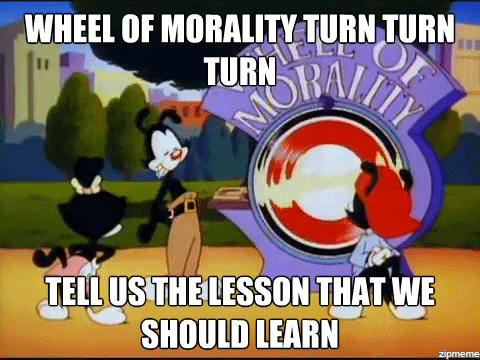
Riiight.
Because the same minister who gives fire and brimstone sermons would be the sort of person that would talk about God watching over you and if you trust Him, then things will be all right.
I think the minister would most likely say "God is always watching your every move. If you are bad, He will smite you. And your soul will burn in Hell for all eternity."
It was a lesson that I would eventually learn in time, though it wasn’t Hegbert who taught me.
"It would be my designated love interest."
Landon says that Beaufort is a typical southern town but it has an interesting history.
He talks about how Blackbeard owned a house in town and recently his ship might have been found by "some archaeologists or oceanographers or whoever looks for stuff like that."
Landon, they are called marine archaeologists.
Being that it sank over 250 years ago and you can’t exactly reach into the glove compartment and check the registration.
Because a pirate ship would have a glove box.
I think that comment sounded wittier in Nicholas Spark’s head than it does on paper.
Beaufort’s come a long way since the 1950s, but it’s still not exactly a major metropolis or anything.
We get it, Landon. Beaufort is a quaint and small southern town.
Beaufort was, and always will be, on the smallish side, but when I was growing up, it barely warranted a place on the map.
For the love of all that is holy, will you please stop talking about the same thing over and over again?
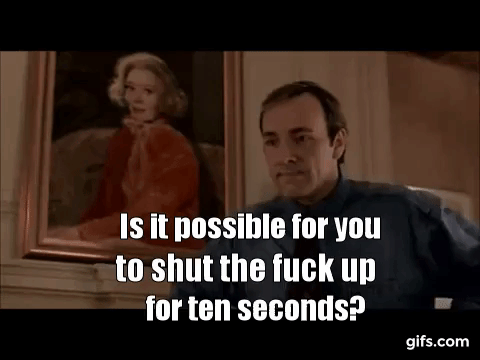
Landon keeps talking about how Beaufort is a small town and how "the congressional district that included Beaufort covered the entire eastern part of the state—some twenty thousand square miles—and there wasn’t a single town with more than twenty-five thousand people."
It turns out that Landon's father is a congressman.
I suppose you’ve heard of him. He’s sort of a legend, even now.
If he was a legend, then you wouldn't be telling us who he is.
Landon's father is Worth Carter and he was a congressman for almost thirty years.
Worth's election slogan is “Worth Carter represents ———” and people are supposed to fill in the city name where they lived.
I can remember, driving on trips when me and Mom had to make our appearances to show the people he was a true family man
I call bullshit on Landon's dad being a "true family man".
Landon's father is gone nine months out of the year and is living in Washington D.C. while his mother is taking care of him.
Landon talks about how his father election slogan "was fairly sophisticated publicity."
He says that nowadays people would put foul language in the blank space but in the good ol' days "we never saw it once."
Landon quickly backpedals and says "okay, maybe once."
A farmer from Duplin County once wrote the word shit in the blank space, and when my mom saw it, she covered my eyes and said a prayer asking for forgiveness for the poor ignorant bastard.
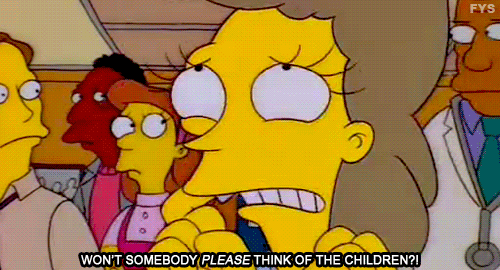
Nicholas Sparks is still trying to persuade me that 1950's was a wholesome utopia.
But I'm not convinced.
Every era of human history, no matter how fascinating or glamorous, has a dark side that people don't want to acknowledge.
And I find it very hard to believe that Landon has never seen or heard foul language before.
For instance, in middle school, I heard people say things that would make even a sailor blush.
Since Landon's mother is ladylike, she "didn’t say exactly those words."
So my father, Mr. Congressman, was a big-wig, and everyone but everyone knew it, including old man Hegbert.
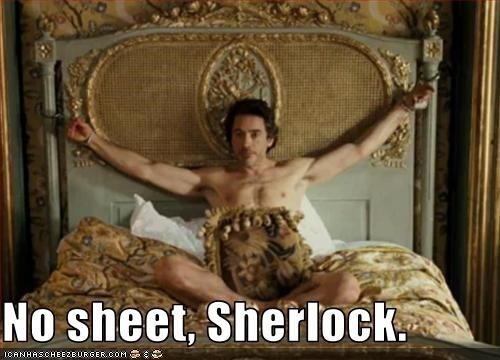
Landon claimed that daddy dearest was a "legend."
And Merriam-Webster defines a bigwig as "an important person"
So the words "everyone but everyone knew it" is redundant.
Worth Carter and Hegbert don't get along. But Worth still goes to Hegbert's church whenever he was in town.
Hegbert, in addition to his belief that fornicators were destined to clean the urinals in hell, also believed that communism was “a sickness that doomed mankind to heathenhood.”
I will bring this up if anyone claims that Hegbert is a good guy.
One of the biggest problems with A Walk to Remember is plot mixing.
What is plot mixing, you may ask?
Plot mixing is a term that I have coined. Plot mixing is when an artist takes at least two contradictory plots and they mix it together haphazardly, resulting in a ghastly mess.
For instance, Hegbert is supposed to be a wonderful guy with a great sense of humor. But he is acting like a Bible-thumping minister.
They also knew that he was directing his words specifically to my father, who would sit with his eyes closed and pretend not to listen.
I have just a quick question: why would Landon's dad go to a church where the minister despises him and makes pointed sermons?
According to Landon, there are other churches in the area. So, why hasn't Worth Carter left Hegbert's church and joined another church?
It turns out that Landon's father belongs to the House of Un-American Activities Committee.
My father had consistently looked for facts, which were irrelevant to people like Hegbert.

IRL, I hate it when people think they are the gatekeepers of knowledge, truth, and wisdom.
They also claim that they have "facts" that support their worldviews.
If anyone who disagrees with them, then they are dumb sheep and a racist bigot.
Are we seriously supposed to see HUAC as the good guys?
HUAC ruined people's lives and careers. And their actions violated the 1st and 5th Amendments of the Bill of Rights.
Every time Landon's father would come home after the church service, he would complain about Reverend Sullivan.
My father tried to defuse situations whenever possible. I think that’s why he stayed in Congress for so long.
Like any politician, a congressperson gives people in high places verbal blowjobs and make promises that they have no intentions of keeping along with having goons to cover up their crimes.
The guy could kiss the ugliest babies known to mankind and still come up with something nice to say.
Are we supposed to applaud Landon's dad being nice to the "ugly" people?
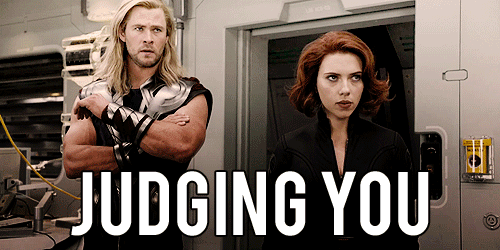
“He’s such a gentle child,” he’d say when a baby had a giant head, or, “I’ll bet she’s the sweetest girl in the world,” if she had a birthmark over her entire face. One time a lady showed up with a kid in a wheelchair. My father took one look at him and said, “I’ll bet you ten to one that you’re smartest kid in your class.”
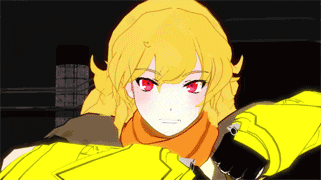
Fuck this book with a rusty screwdriver!
And he wasn’t such a bad guy, not really, especially if you consider the fact that he didn’t beat me or anything.
A parent is not supposed to abuse their children, you twat!
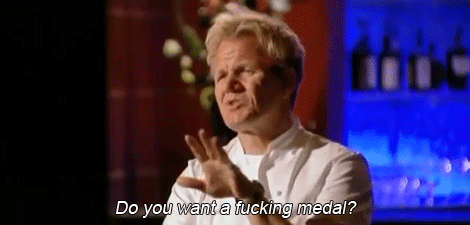
But he wasn’t there for me growing up.
In a better story, Landon being estranged from his father would be a source of conflict.
And throughout the story, Landon would fix his broken relationship with his father.
But this is a shitty story, Landon will meet his designated one tru luv who is purer than Sir Galahad.
Landon spends time with this girl and his relationship with Dad is magically mended.
I hate to say that because nowadays people claim that sort of stuff even if their parent was around and use it to excuse their behavior. I’m not using it to excuse the person I’ve become, I’m simply saying it as a fact.
No, you did.
You even said it "made me become something of a rebel."
My mother didn’t go with him because both of them wanted me to grow up “the same way they had.”
So they were raised by one parent?
Wait a tick... I think what Landon means is that his parents wanted him to grow up in a small town.
And small towns tend to be politically conservative.
As a member of HUAC, a married man living alone would raise more than a few eyebrows.
Especially since the nuclear family was considered the "ideal" family in 1950's.
Also during this time period, people wanted to uphold traditional family roles and values.
I'm sure Worth Carter's political opponents would have a field day if they knew he wasn't a family man.
And you can't tell me that in a Southern small-town that people won't gossip about a married woman raising a child all by herself and her husband is rarely home.
Landon says that his grandfather spent time with his father and how that "adds up to quite a bit before adulthood."
Landon talks about how his father was "a stranger" and someone he "barely knew at all."
He also used to think that "all fathers lived somewhere else."
Landon says that one day his best friend Eric Hunter asks him "who that guy was who showed up at my house".
Landon replies that the man was his father "proudly."
“Oh,” Eric said as he rifled through my lunchbox, looking for my Milky Way, “I didn’t know you had a father.”
"People around town were saying that your mamma was a whore and has a beau."
Landon repeats the fact that he was raised by his mother.
Now she was a nice lady, sweet and gentle, the kind of mother most people dream about.
Because most people want their mother to be a cold-hearted bitch.
Does Landon seriously think that his mother deserves a medal for not being an asshole?
And I'm getting the feeling that dear old mom is going to be a submissive housewife who never speaks her mind, makes sure the house is always immaculate and treats her husband like a king.
But she wasn’t, nor could she ever be, a manly influence in my life, and that fact, coupled with my growing disillusionment with my father, made me become something of a rebel, even at a young age.
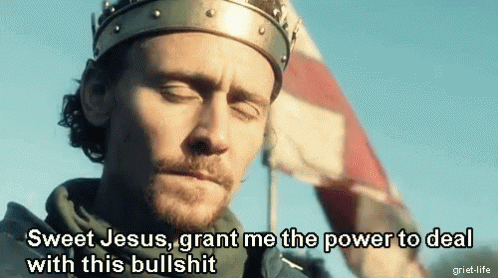
Where do I even begin?
According to Landon, women are incapable of doing/liking "manly" activities.
Butch women or tomboys don't exist. ALL women love feminine things and are ladylike.
And it takes a MAN to raise a "real" man.
The father is supposed to do "manly" activities with his son on a regular basis. And boys are supposed to do and like "manly" activities.
If the boy doesn't and becomes a delinquent, then he is a sissy and his mother is to blame.
Not a bad one, mind you.
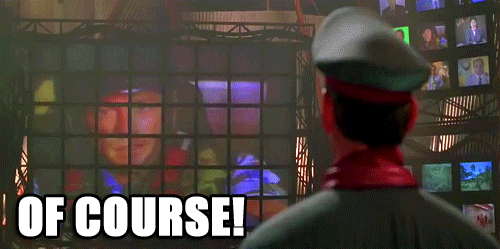
This is a Nicholas Sparks novel.
He would never have a "protagonist" do bad things. He has a wholesome image to uphold.
They must be good as gold or be mildly delinquent.
Me and my friends might sneak out late and soap up car windows now and then or eat boiled peanuts in the graveyard behind the church, but in the fifties that was the kind of thing that made other parents shake their heads and whisper to their children, “You don’t want to be like that Carter boy. He’s on the fast track to prison.”
Contrary to what Nicholas Sparks might believe, the 1950's wasn't Leave it to Beaver.
For instance, people did phone pranks, threw cherry bombs or were stealing statues.
Me. A bad boy. For eating boiled peanuts in the graveyard. Go figure.
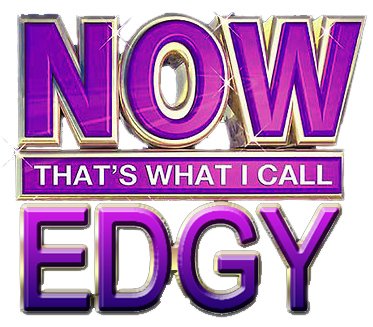
Landon repeats the fact that his father and Hegbert don't get along. But he says "it wasn’t only because of politics."
And then it happens.
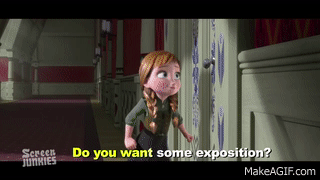
It turns out that Worth Carter and Hegbert knew each other for a long time.
And Hegbert is twenty years older than Daddy Dearest and used to work for Landon's grandfather.
My grandfather— even though he spent lots of time with my father —was a true bastard if there ever was one.
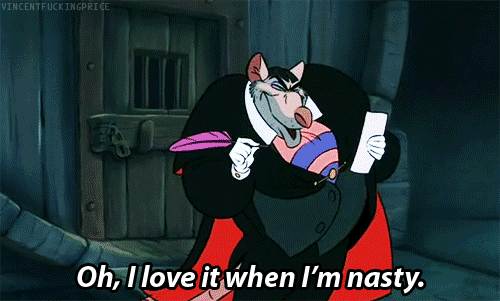
I have a question, Landon. Does your grandfather only wears black clothing and has an evil laugh?
He was the one, by the way, who made the family fortune, but I don’t want you to imagine him as the sort of man who slaved over his business, working diligently and watching it grow, prospering slowly over time.
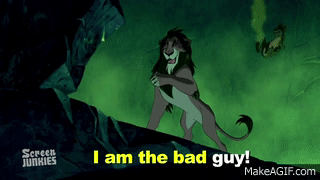
We get it, Nicholas Sparks. Landon's grandpa is more evil and greedy than all the robber barons.
Next, you'll be telling us that grandpa was a pedophile or kicked puppies for fun.
His grandfather was a bootlegger during the Prohibition, started buying land and then hired sharecroppers to work it.
Grandpa also took ninety percent of the money the sharecroppers made and loaned them money whenever they needed it at high-interest rates.
Grandpa is so EVIL he forecloses on any equipment or land they happen to own. Evil Grandpa...
No. From now on, I'm calling him Grandpa Beelzebub or GB.
GB started a bank called "Carter Banking and Loan."
The only other bank in a two-county radius had mysteriously burned down, and with the onset of the Depression, it never reopened.
The other bank didn't "mysteriously" burn down, you twit. GB had his goons torch the place.
Though everyone knew what had really happened, not a word was ever spoken for fear of retribution, and their fear was well placed.
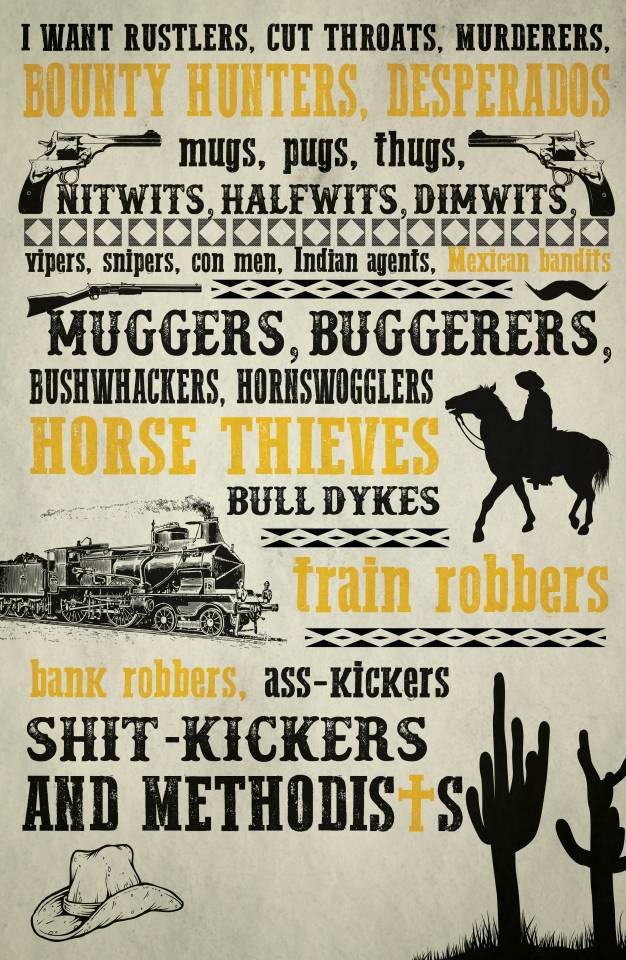
So even the police were shaking in their boots?
The bank wasn't the only building that burned down.
Landon repeats the fact that Grandpa Beelzebub's interest rates "were outrageous." As time progresses, GB amasses more land and property.
He gets the original owners to continue working and pays them just enough money to "to keep them where they were, because they had nowhere else to go."
He told them that when the economy improved, he’d sell their business back to them, and people always believed him.
The townspeople know that GB used fear and intimidation to get what he wanted along with his shady business practices.
And they ALL believed that he would honor his promises.
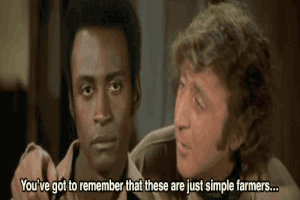
Never once, however, did he keep his promise. In the end he controlled a vast portion of the county’s economy, and he abused his clout in every way imaginable.
Ya know what?
There are so many times I can point out how Grandpa Beelzebub is cartoonishly evil so I'll let this gif speak for itself.
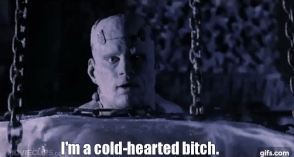
Grandpa Beelzebub died while having sex with his mistress on his yacht in the Cayman Islands. GB was also an old man.
He’d outlived both his wives and his only son.
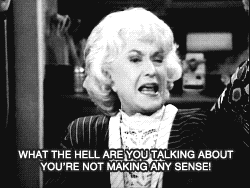
If Daddy Dearest died before GB, he wouldn't be a prominent congressman.
And Landon would have never met his father.
He would be visiting Daddy's grave and be raised by a widow.
Life, I’ve learned, is never fair.
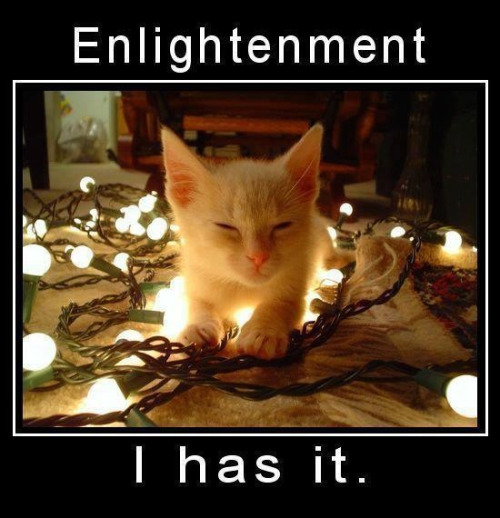
Marvel at how deep he is! No one has ever made such a wise statement.
Landon whines that it should be taught in school.
Hegbert, once he realized what a bastard my grandfather really was,
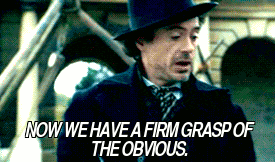
You mean arson and usury are not legal and moral? I never knew that!
Thanks for letting me know, Nicholas Sparks!
So, Hegbert quit working for GB and went into the ministry. Then he started ministering in the same church that Landon's family attended.
Hegbert spent some time "perfecting his fire-and brimstone act", giving monthly sermons on the evils of greed.
He was so busy Bible thumping that he had "scant time for anything else."
Hegbert was forty-three when he was married and his daughter Jamie was born when he was fifty-five.
Hegbert's wife was twenty-three years old and had six miscarriages before Jamie was born. She also died in childbirth.
Hence, of course, the story behind the play.
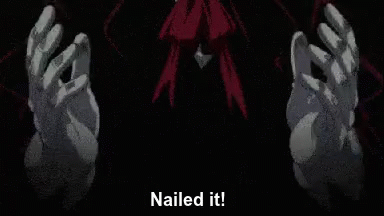
I love it when I'm right. And Hegbert is so arrogant if he thinks that everyone would want to see a play that is his thinly veiled life story.
People knew the story even before the play was first performed.
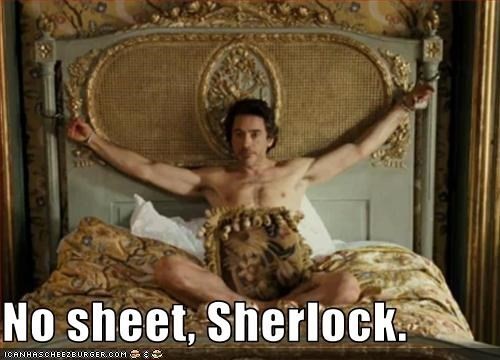
If it was any more obvious, the character Tom would be called Hegbert and be a minister.
It was one of those stories that made its rounds whenever Hegbert had to baptize a baby or attend a funeral.

Baptists don't baptize babies. They believe that only believers should be baptized and be fully immersed in the water.
Landon repeats the fact that everyone knew about Hegbert's story and says it is why people "got emotional" when they saw the play.
They knew it was based on something that happened in real life, which gave it special meaning.
So if a story isn't based on something that happened in real life, then it isn't special? Fuck you, Landon.
Jamie Sullivan was a senior in high school, just like me, and she’d already been chosen to play the angel, not that anyone else even had a chance.
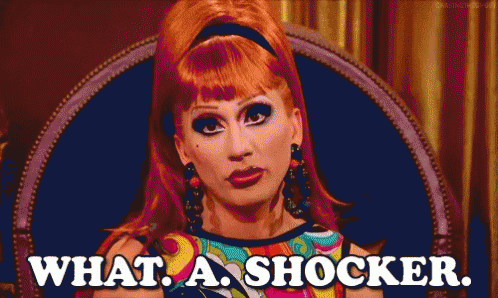
I would be very surprised if Jamie WASN'T in the play.
After all, the play was written by her father and is a thinly veiled story about her dad losing her mom.
And real subtle, Nicholas Sparks.
A saintly girl is going to play an angel.
Thank God, Jamie isn't named Sunshine Goodness.
Jamie playing the angel is going to make the play "extra special" and how it is going to be a "big deal" especially for Miss Garber.
Miss Garber is the drama teacher and she was excited "the first time I met her in class."
Landon admits that he really didn't want to take drama class but it was "either that or chemistry II."
No papers, no tests, no tables where I’d have to memorize protons and neutrons and combine elements in their proper formulas … what could possibly be better for a high school senior?
How about lunch? All you have to do is eat and socialize.
It seemed like a sure thing, and when I signed up for it, I thought I’d just be able to sleep through most every class, which, considering my late night peanut eating, was fairly important at the time.
Why am I getting the feeling that "late night peanut eating" is a euphemism for sex? Because eating peanuts is not a strenuous thing to do...
Landon arrives before the bell rang and sits in the back of the room.
Miss Garber had her back turned to the class, and she was busy writing her name in big cursive letters, as if we didn’t know who she was.
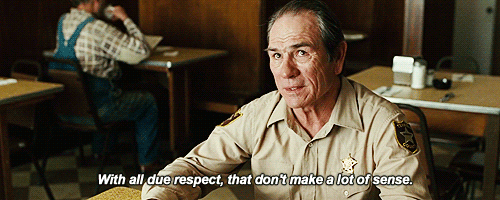
You just said that you met Miss Garber for the first time in class.
Now you are saying that you already knew her.
Which is it, Landon?
All these contradictions are giving me a headache.
Everyone knew her—it was impossible not to.
"She was bludgeoned with the ugly stick."
Am I the only one who thinks this comment is catty?
She was big, at least six feet two, with flaming red hair and pale skin that showed her freckles well into her forties.
The word "tall" seems like a better fit.
Big is used to describe the size of something.
While "tall" refers to the height of something.
I seriously hope that Landon isn't saying that this woman is "ugly".
She was also overweight—I’d say honestly she pushed two fifty—and she had a fondness for wearing flower patterned muumuus. She had thick, dark, horn-rimmed glasses, and she greeted everyone with, “Helloooooo,” sort of singing the last syllable.
Translation: she's a fat Julia Child who wears glasses.
From now on, I shall call Miss Garber Julia Child.
Miss Garber was one of a kind, that’s for sure, and she was single, which made it even worse.
Stop! Do not pass go! Do not collect $200!
A guy, no matter how old, couldn’t help but feel sorry for a gal like her.

Because after all, beauty on the outside is the only thing that matters.
Being a good human being and having a nice personality is overrated.
Later on, Landon complains that "the pickings were getting pretty slim" and how he doesn't want to be stuck bringing an "ugly" girl to the homecoming dance (i.e. girls who have thick glasses or have lisps.)
People praise Nicholas Sparks for writing wholesome fiction that has life lessons and good morals.
But I would rather read a story that has swearing (Ow! My virgin ears!) or graphic sex (gasp!) than a story with shitty messages and it is written by a pretentious writer who believes that they write literary masterpieces.
Julia Child writes the three goals that she wants to accomplish: self-confidence, self-awareness, and self-fulfillment.
Landon remarks that she was "into the 'self' stuff."
Maybe it had something to do with the way she looked; maybe she was just trying to feel better about herself. But I digress.
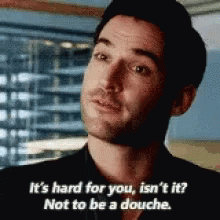
It wasn’t until the class started that I noticed something unusual.
"Everyone wore black cloaks and pledged their allegiance to Satan."
Landon is surprised that the class is "at least ninety percent female" because he "knew for a fact" that school is split 50/50 between boys and girls.
There was only one other male in the class, which to my thinking was a good thing, and for a moment I felt flush with a “look out world, here I come” kind of feeling.
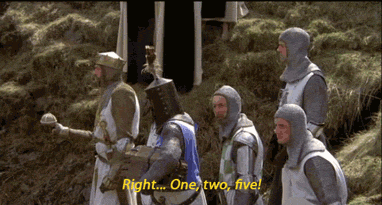
The schools in Beaufort NC have excellent math programs...
I don't feel like spending hours trying to look up the average high school class size in North Carolina during the 1950's.
So I'll be using the current average high school class size in North Carolina.
According to this, the average class size for secondary school (high school) in North Carolina is 25.8 students.
Let's say there are twenty-six students in the drama class.
91% of 26 would be 23.66
Approximately, there would be 23 girls and 3 boys.
Besides Landon, there would be two other boys in the classroom.
Girls, girls, girls … I couldn’t help but think. Girls and girls and no tests in sight.
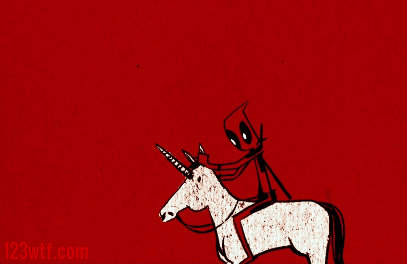
It is good to know that Landon is thinking with his head and not with his dick.
Okay, so I wasn’t the most forward-thinking guy on the block.

Anita Blake Logic # 2: If you say something wrong, act like you are feeling guilty.
You DON'T try to be a better person and APOLOGIZE to the person/people that you have hurt. No one EVER calls you out on your shit.
So Julia Child talks about the play and tells everyone that Jamie is going to play the angel.
She starts clapping and it turns out that she is a member of Landon's church.
And there were a lot of people who thought she was gunning for Hegbert in a romantic sort of way. The first time I heard it, I remember thinking that it was a good thing they were too old to have children, if they ever did get together. Imagine—translucent with freckles?

The very thought gave everyone shudders, but of course, no one ever said anything about it, at least within hearing distance of Miss Garber and Hegbert.
So everyone is an asshole and gossips like fishwives?
Gossip is one thing, hurtful gossip is completely another, and even in high school we weren’t that mean.
"Like Duloc, the South is a perfect place!"
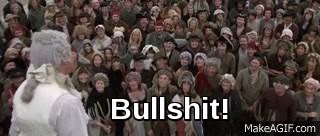
I'm sorry but I don't believe that a high school with no cliques and everyone is nice exists.
Landon is a douchebag and so are his friends.
Also, how is gossiping about Thank God Hegbert and Julia Child can't reproduce count as not being "mean"?
And the townspeople talk about Hegbert's wife having multiple miscarriages and dying in childbirth...
And for a novel that is so friggin' preachy by constantly talking about God's plan/the Lord's plan and quoting Bible verses...
It doesn't realize that the Good Book doesn't view gossip as a venial sin while "hurtful" gossip is a mortal sin.
The Bible denounces it.
Julia Child keeps on clapping until everyone finally joined in. She orders Jamie to stand up.
Jamie stands up and turns around. Julia Child is clapping even faster to which Landon snidely remarks "as if she were standing in the presence of a bona fide movie star."
Now Jamie Sullivan was a nice girl. She really was.
Translation: It's a pleasant way to say that she isn't attractive.
Landon talks about the town only has one elementary school so everyone has been "in the same classes our entire lives."
He admits to having a "few conversations" with Jamie.
Who I saw in school was one thing; who I saw after school was something completely different, and Jamie had never been on my social calendar.
"She is not worthy to stand before me!"
It’s not that Jamie was unattractive— don’t get me wrong. She wasn’t hideous or anything like that.
"Inner beauty is overrated!"
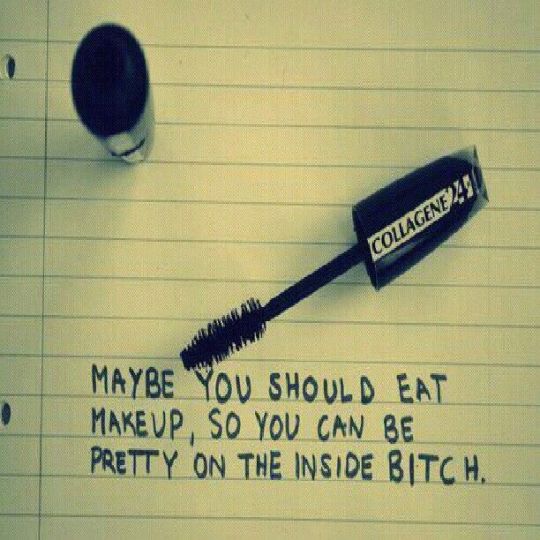
Landon reluctantly admits that Jamie "wasn't half-bad." But he doesn't consider her to be attractive.
Despite the fact that she was thin, with honey blond hair and soft blue eyes, most of the time she looked sort of … plain, and that was when you noticed her at all.
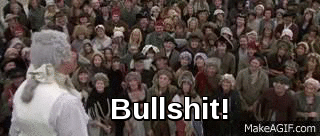
Because having fair skin, blonde hair, and blue eyes were NEVER considered to be signs of beauty.
And I really hate it when a character is "TV ugly".
Especially when it is combined with this.
Jamie didn’t care much about outward appearances, because she was always looking for things like “inner beauty,” and I suppose that’s part of the reason she looked the way she did.
I love how inner beauty is put in quotes. As if the concept is absolute horse shit.
For as long as I’d known her—and this was going way back, remember— she’d always worn her hair in a tight bun, almost like a spinster, without a stitch of makeup on her face.
This statement is obnoxious because later on in the story Jamie will be described as beautiful even when she is dying of a terminal illness.
Jamie wears frumpy clothes and everyone thought it was "just a phase".
But it wasn’t just the way Jamie looked that made her different; it was also the way she acted.
"She acted like an Angel of the House: innocent, perfect, and pure."
Jamie never went to slumber parties or had a boyfriend.
Old Hegbert would probably have had a heart attack if she had.

Hegbert would have denounced his daughter as a harlot before killing her.
Jamie carried her Bible wherever she went, and if her looks and Hegbert didn’t keep the boys away, the Bible sure as heck did.
"It couldn't possibly be that her father is a Bible-thumping asshat."
Now, I liked the Bible as much as the next teenage boy,
Translation: not at all.
but Jamie seemed to enjoy it in a way that was completely foreign to me.
"She reads it from cover to cover."
Not only did she go to vacation Bible school every August, but she would read the Bible during lunch break at school.
This is Nicholas Spark's "subtle" way of telling us that Jamie is a good person. Because she reads the Bible.
Landon thinks Jamie is abby normal. How romantic.
No matter how you sliced it, reading Paul’s letters to the Ephesians wasn’t nearly as much fun as flirting, if you know what I mean.
Because flirting is a lot of fun!
If I didn't know any better, I'd say flirting is a code word for sex...
But one of Nicholas Sparks' writing rules is that his teenage characters never have premarital sex.
But Jamie didn’t stop there. I knew she volunteered at the orphanage in Morehead City, but for her that simply wasn’t enough.
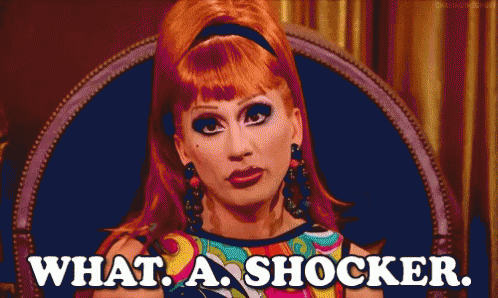
Let me guess. Jamie is SO good that she is going to help baby animals and solve world hunger.
She was always in charge of one fund-raiser or another, helping everyone from the Boy Scouts to the Indian Princesses, and I know that when she was fourteen, she spent part of her summer painting the outside of an elderly neighbor’s house. Jamie was the kind of girl who would pull weeds in someone’s garden without being asked or stop traffic to help little kids cross the road. She’d save her allowance to buy a new basketball for the orphans, or she’d turn around and drop the money into the church basket on Sunday.
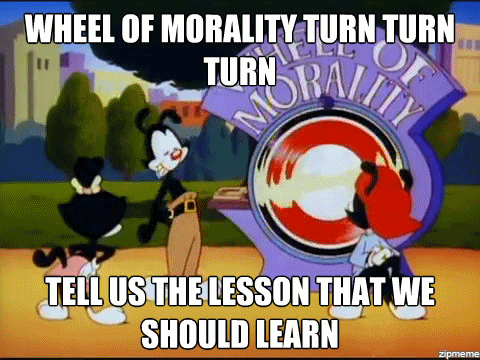
Ho-lee fuck! Where do I even begin?
There is no such thing as a Native American princess.
Nobody is perfect. But according to Nicholas Sparks Landon, Jamie is practically perfect in every way.
Jamie is NEVER depicted as having any flaws. She is always nice to everyone and always never does anything wrong.
She was, in other words, the kind of girl who made the rest of us look bad, and whenever she glanced my way, I couldn’t help but feel guilty, even though I hadn’t done anything wrong.
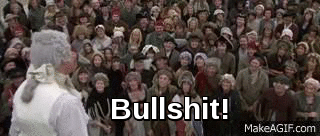
You are a douchebag who makes snide comments.
Nor did Jamie limit her good deeds to people. If she ever came across a wounded animal, for instance, she’d try to help it, too. Opossums, squirrels, dogs, cats, frogs … it didn’t matter to her.

We get it, Sparks. Jamie is a paragon of virtue. Stop talking.
With Jamie, everything was in the Lord’s plan. That was another thing. She always mentioned the Lord’s plan whenever you talked to her, no matter what the subject.
I get it, Sparks.
Jamie is a saintly person.
And Jesus is love, Jesus is life.
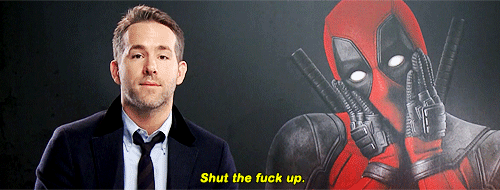
Landon tells us that Jamie thinks she is "so blessed to have a father like mine."
He thinks "what planet she actually came from."
Despite all these other strikes, though, the one thing that really drove me crazy about her was the fact that she was always so damn cheerful, no matter what was happening around her.
In real life, a person who is ALWAYS cheerful is depressed.
But this is a Nicholas Sparks novel.
So Jamie is cheerful like a Disney princess.
Thank God, Jamie doesn't break into song.
I swear, that girl never said a bad thing about anything or anyone, even to those of us who weren’t that nice to her.
Translation: Jamie is a female version of Jesus Christ.
Landon keeps going on about how nice Jamie is.
All the adults "adored" her and ladies would "come running out of their house" if they see Jamie walking by.
I was thinking about all this while Jamie stood in front of us on the first day of drama class, and I admit that I wasn’t much interested in seeing her.
For a girl that Landon despises, he won't stop talking about her.

But strangely, when Jamie turned to face us, I kind of got a shock, like I was sitting on a loose wire or something.
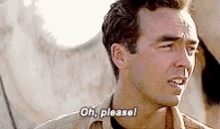
It is bad enough that Nicholas Sparks is forcing a romance between two characters and will claim that they are soulmates...
Now he has them feeling an instant electric connection.
What’s next? Will fireworks go off? Will cherubs start to sing?
She wore a plaid skirt with a white blouse under the same brown cardigan sweater I’d seen a million times, but there were two new bumps on her chest that the sweater couldn’t hide that I swore hadn’t been there just three months earlier.
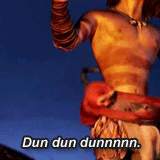
I'll give three guesses and the first two don't count.
It isn't surprising since a lot of Nicholas Sparks' novels are renowned for having contrived "tragic" endings in which someone (usually the love interest) dies.
She’d never worn makeup and she still didn’t, but she had a tan, probably from Bible school, and for the first time she looked—well, almost pretty.
If "almost pretty" isn't a backhanded compliment, I don't know what is.
Landon quickly "dismissed" the thought.
But as she looked around the room, she stopped and smiled right at me, obviously glad to see that I was in the class.
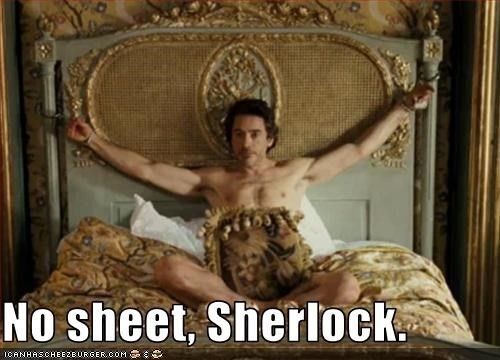
Smiling is an expression that shows happiness, affection, etc.
She shouldn't be happy to see him.
The guy mocks her and avoids her like the plague.
But Sparks told us that Jamie is made up of sugar, spice, and everything nice.
It wasn’t until later that I would learn the reason why.
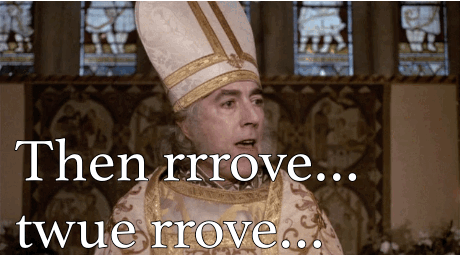
2 notes
·
View notes
Photo

I expect spectacle when I see a Luc Besson movie. My eyes will be exhausted from trying to track a thousand and one things at any given moment, and my brain registers a plot and story are in there somewhere, but, quite frankly, I’m in so much visual ferret shock, the first viewing of the movie is pretty much a giant exercise in saying “OOOO! Lookitdat!”. I don’t just accept this, I go gratefully along for the ride.
“Valerian and the City of a Thousand Planets” is based on a series of French graphic novels. I know, I know, being Madam Obvious, there, but, just in case someone reading this doesn’t know, there it is. This movie is essentially about Valerian and his partner Laureline trying to save Station Alpha, a giant conglomerate of space stations created by thousands of different species (including humans) which has been released to float through space to avoid crashing it into the Earth. A mysterious zone of contamination has cropped up in the middle of Alpha Station. Nobody seems to know what caused it or why, and the Commander of Alpha Station is determined to stop it. Valerian and Laureline are the best agents the government has to offer, so, naturally, they’re called in.
Visually, the movie is stunning. World building is done through progressively more fantastic images, piling on sensory input to provide the eyes with a bountiful feast. The costuming and set designs, as well as the animation are done gorgeously. From a purely aesthetic standpoint, I have no complaints.
Story-wise, however, well, let’s start with it. If the plot seems a bit simplistic, that’s because it is. I understand there are different types of stories with different driving mechanisms. Valerian is written as though it’s intended to be character-driven, however, it’s clear from the outset the setting is the driving force, which is emphasized and reinforced through the scenery. This one suffers from poor and inconsistent writing which would only be acceptable in the framework of a parody.
The characters aren’t really anything new here. Valerian is an overconfident cad, Laureline is a verbally and physically abusive woman who seems to mistake bitchiness for toughness and strength, Clive Owen’s character is-exactly what you peg him for the moment he steps on screen and, in the climactic reveal, ends up elevating his two-dimensionality to glossy standee levels. It’s all predictable. Really predictable. I knew what was going to happen as soon as all our principal players were introduced, which I found both sad and frustrating. I’m also going to more than quibble with a character set up like Valerian’s, where, one minute, he’s got to be chewed out by everyone on the mission with him for not reading his memo, then in a pivotal scene claiming he’s a soldier who’s all about the rules and going by the book. What. the. actual. fuck? No. No. Character development (which there’s zero in this movie) requires character consistency. A truly dedicated by the book soldier would have read that memo so many times he had it memorized, not obstinately, willfully stayed clueless so as to endanger everyone else on the mission with him.
Canonically, Valerian’s pretty much a dick. Besson didn’t mess with that character description much at all. However, with a character like Valerian, he needs to be played by an actor who has the charisma and screen presence to pull it off. Dane DeHaan was not the guy to do it. He just couldn’t pull off the necessary swagger, and instead of seeming laid-back, he comes off as sedated. I’m still not sure if he as an actor was confused or phoning it in.
When it comes to Laureline, I don’t think Cara Delevigne was miscast. I think she got bad direction. Laureline is intended to be the capable one who gets things done. She’s supposed be tough and feisty. She can GET mean, but I was never under the impression Laureline was practically as bad as everyone she’s attempting to save the world from. In the opening scene, which is supposed to be one of those fighting as foreplay kind of scenes, there’s a total lack of chemistry between DeHaan and Delevigne, to the point that, rather than flirty or playful (trust me, there is an arctic desert of playfulness going on there), it’s really uncomfortable and awkward. These two actors are wrestling for superiority and beating the shit out of each other while trying to normalize it in a context of “playing hard to get�� and jockeying for dominance. There’s no sexiness. None. Zip. Zero. Zilch. I will forever point to this as a scene of “No. Just, no.”
Laureline charges through the movie beating people up and shooting things while either screaming or barking at people. She’s supposed to be intimidating. I found her mostly psychopathic. I wanted to see her have more facets than “Generic Kick-Ass Unattainable Soldier Girl”. I wanted her to use some diplomacy and some eloquence to solve some problems, instead of violence, especially given Station Alpha’s intent (which is stated several times, explicitly with the EXACT SAME PHRASE EVERY TIME) to be a place where all species come together to share knowledge and intelligence. It’s really not the kind of place where violence first seems like an acceptable or effective policy. But, you know, as a woman and a feminist, I’m supposed to be totally satisfied with Laureline showing a tiny bit of tenderness when she’s designated the caregiver of an alien creature, which, of course, she knows exactly how to nurture back to health. Dammit. She’s a Mommy to an alien pet. Did I mention this happens when it’s established she’s the only woman in a room full of dudes? No? Well it does. Three more dammits in a slumped formation, let me tell you.
So, in addition to writing issues, we also have two massively unlikeable characters we’re supposed to somehow develop empathy for and root for to ultimately get together. They’re set up as so laughably toxic I can’t hold out any hope for their relationship to survive.
Clive Owen shows up to chew through scenery and snarl, which he does pretty well, especially given what he had to work with. At least he had a couple of different emotions I could find believable.
And yet...I still don’t feel as though my ticket was a waste of money.
Rutger Hauer made a return to the big screen in a blink and you might miss it role, but I’m still very happy to see him. He does cranky old bastard well and it’s fun to see him play it.
Herbie Hancock shows up as the Defence Minister. I didn’t know he acted, but he did and he was easily one of my favorite parts of this film. He had an air of wise gravity and common sense “Valerian” desperately needed. Yes, I admit it, every time he came on screen, I thought to myself “Oh, thank god, there is an adult running things here after all!”
Ethan Hawke’s turn as a sleazy space pimp was inspired and hilarious. He gave himself over to the part with complete, gleeful abandon and it showed in every second of screentime. He was having fun and, honesty, I needed to see someone in the movie looking like they were having fun being in it.
Rhianna also did a great job as Bubble. I’m not sure if this was her movie debut, but she was also great fun to watch. She definitely seemed to be having fun there, too. I was impressed with the impact she gave her character’s relatively small part. She was memorable in all the best ways.
I do like that Luc Besson is a Big Picture kind of thinker. It shows in his movies. He sees the forest and he’s so very excited to show you the entire thing, he sometimes forgets why a single tree might gain importance. He gives his audience credit for being able to follow him when he makes time and logic jumps, and he’s obviously not afraid to try new things. As a filmgoer, I find when I watch his movies, he gives me so much to look at, I see different trees and follow a different path every time. I can appreciate his style and his enthusiasm.
I had a discussion with a friend just yesterday. We were talking reviews of “Valerian” and, of all things, Michael Bay. I don’t like Michael Bay and my friend had to ask, “But why? What’s different about a Michael Bay spectacle versus a Luc Besson one?”
Admittedly, when I watch a movie, it’s a visceral, emotional experience for me. I watch first, as a rapt starry-eyed little sprocket. Then, I turn around and analyze the hell out of it. My friend was asking me to articulate a difference I hadn’t actually tried to verbalize before.My answer surprised me.
I don’t like Michael Bay movies because he condescends to his audience. His disdain for the public he can so easily shill for their money drips out of his movies more and more obviously with each new sequel. It’s so obvious in the trailers they string together I don’t even have to bother with the movies anymore. He doesn’t care about the franchise. He doesn’t care about the fans. His movies have a rote list of checkboxes and standard-issue explosions, car chases, and female body exploitation scenes in order to distract from the lack of plot and character development. He does his best to shiny thing away the plot holes and inconsistencies.
I’ve never felt as though Besson was throwing cheap tricks at me to keep my butt in a seat and make his box office. Instead, his movies, at least his true spectacle movies feel like someone who opened up a toy box and is trying to show his new friends every wonderful thing he just discovered and convince you to come and play, too. He’s tripping on the thrill of his own imagination and doing his absolute best to bring everyone else along on the ride with him.
So, yes, I loved the eye candy. The alien designs, especially for the inhabitants of Mul (which should have umlauts, but I don’t see how to add them in Tumblr) are very striking. The glimpses of the worlds within Alpha are interesting and intriguing. I found myself wanting to watch this movie again for inspiration for stories I want to tell because it’s so full of sheer concept.
“Valerian and the City of a Thousand Planets” is a beautiful romp in a Luc Besson sandbox. It comes with some frustrations attached, but I’m glad I saw it.
#movies#movie review#valerian and the city of a thousand planets#luc besson#dane dehaan#cara delevingne#clive owen#rutger hauer#herbie hancock
2 notes
·
View notes